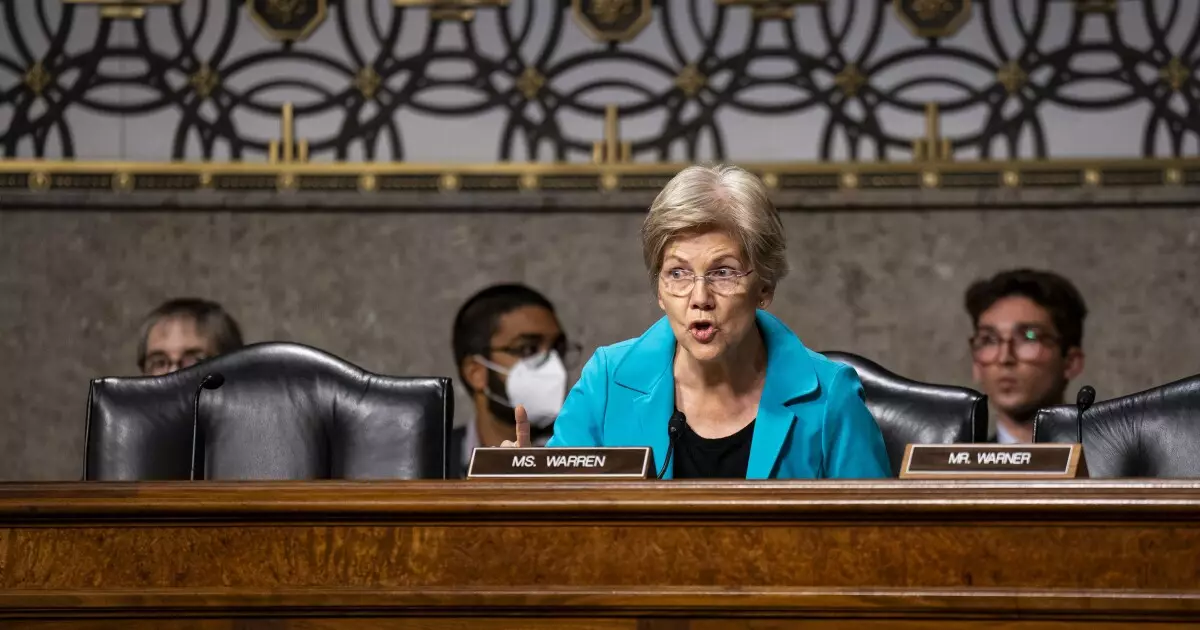As the political landscape shifts in Washington, the debate surrounding tax policy remains a contentious issue, particularly with the impending transition of power within Congress. One prominent figure in this dialogue is Senator Elizabeth Warren of Massachusetts, who recently dismissed the Tax Cuts and Jobs Act (TCJA) of 2017 as a “scam of giant proportions.” In light of Warren’s assertions and the anticipated tactics of the Republican majority, it is crucial to dissect the implications of these tax debates and their potential impact on the American populace.
The TCJA, enacted during President Donald Trump’s administration, was marketed as legislation that would benefit the American worker through tax simplification and reductions. However, critics, including Warren, contend that the act disproportionately favored the wealthy and corporations. During a recent committee hearing, she characterized the results as a “failed promise,” highlighting that it delivered substantial financial gains to the affluent while neglecting the economic realities faced by middle and lower-income Americans.
Warren’s divisive rhetoric serves not only as criticism of past tax measures but also as a rallying call for her peers in Congress. She urged fellow senators to reconsider their alignment with what she referred to as “giveaways to Trump’s billionaire buddies.” The implications of this framing are significant, as it frames the upcoming tax debates not merely as legislative procedures but as moral testaments to the values of equity and fairness in taxation.
Warren cautioned that extending the provisions of the TCJA could result in an estimated cost of approximately $4.5 trillion over the next decade, as reported by the Congressional Budget Office and the Joint Committee on Taxation. This staggering figure raises essential questions about fiscal responsibility and the prioritization of government spending. The idea that the wealthy would benefit disproportionately from such tax cuts while the burden would fall upon everyday taxpayers is a concern that Warren emphasizes emphatically.
Republican leaders, including House Majority Leader Steve Scalise, are pushing forward with plans that could permanently solidify these tax cuts. There is apprehension in markets, particularly related to municipal bonds, that such moves could threaten tax exemptions that currently provide significant benefits to local governments and infrastructure projects. The potential trimming or elimination of these exemptions only exacerbates fears about broader implications on local economies and public services.
A notable aspect of the upcoming debates is the reconciliation process, which allows certain budgetary changes to be passed with a simple majority and without the threat of a filibuster. This legislative strategy has been pivotal in past tax reforms and could facilitate the Republicans’ goals to extend the TCJA without extensive debate. However, as Warren points out, the viability of such extensions hinges on addressing the deficit. Current proposals indicate an inclination to avoid offsetting the revenue losses from tax cuts, a tactic Warren dismissively refers to as “magic math.”
This approach suggests a willingness on the part of the GOP to overlook traditional fiscal norms in favor of maintaining favorable tax structures for the wealthiest Americans. Such actions could signify a shift towards a tax policy heavily skewed in favor of privileged interest groups, exemplifying a departure from the equitable principles that many Democrats champion.
Further complicating the tax debate is the situation surrounding the state and local tax (SALT) deduction cap, enacted under the TCJA. Newly touted proposals from Senator George Helmy of New Jersey advocate for the removal of this cap, stressing its detrimental impact on taxpayers, particularly in higher-tax states. The pursuit of tax fairness, as articulated by Helmy, embodies a broader desire to rectify perceived inequities embedded in the existing tax policy framework.
As politicians position themselves for the upcoming debates, clarity and commitment to fiscal equity will be vital in shaping future tax policies. The choices made by Congress in this tumultuous political climate will undoubtedly affect the livelihood of millions, and it is imperative that elected officials prioritize the interests of the general public over the profit motives of a select few.
The upcoming tax policy debates exemplify a fundamental clash of ideals, where the promises of the past stand to dictate the economic realities of the future. As Senator Warren prepares to navigate these choppy waters, her critiques stress the importance of transparency and accountability in tax legislation, urging lawmakers to choose a path that favors fairness for all Americans rather than further enriching the nation’s elite.


Leave a Reply